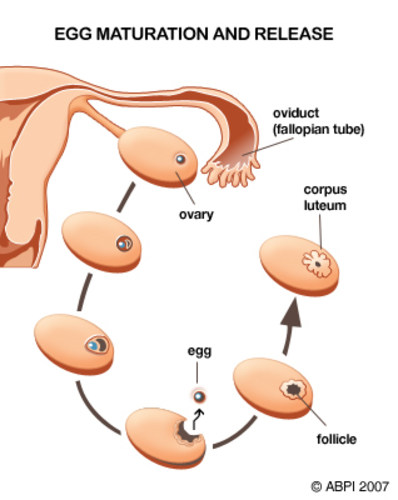This topic takes on average 55 minutes to read.
There are a number of interactive features in this resource:
 Biology
Biology
 Human biology
Human biology
Sex hormones are responsible for some of the most dramatic changes that occur in the body. They control puberty, egg and sperm production, pregnancy, birth and lactation (breastfeeding).
Approximately once a month girls experience menstruation which is bleeding through the vagina. This is caused by the breakdown of the lining of the uterus (womb) and is part of the cycle of events called the menstrual cycle.
The cycle starts with menstruation and then gradually a new egg develops in one of the ovaries. About 14 days after menstruation started the new egg is mature and leaves the ovary (a process known as ovulation). The egg travels down an oviduct (fallopian tube) where, if it meets a sperm, it may be fertilised.
By this time in the cycle the wall of the uterus has repaired itself and thickened up again ready to receive the fertilised egg. The fertilised egg enters the uterus and continues to grow into a baby. If the egg is not fertilised it disintegrates and leaves the body with blood and uterus lining during the next period.
Hormones are involved at every stage of the menstrual cycle.
